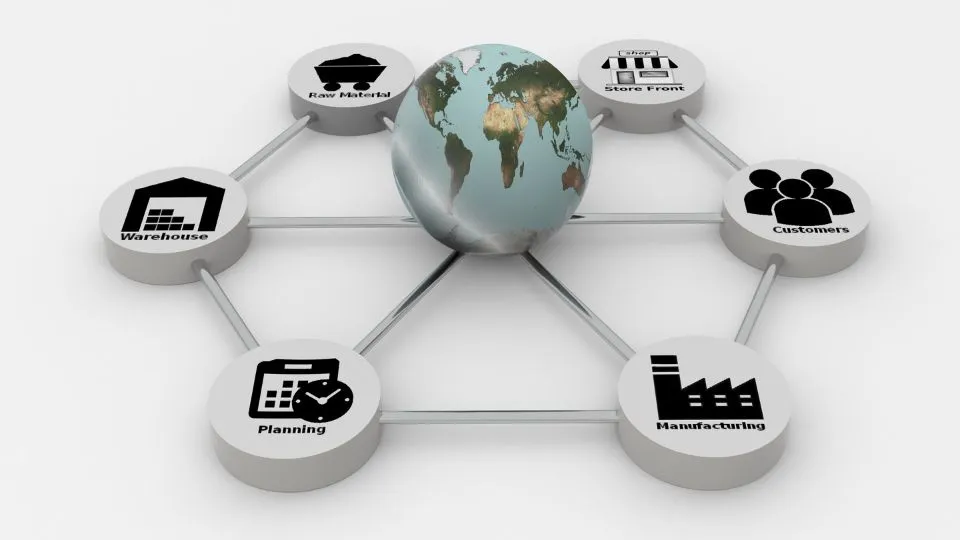Is managing a global workforce draining your HR team’s time and resources?
Navigating compliance, diverse regulations, and cultural nuances across multiple geographies can be a daunting job.
So, how can you streamline HR operations, boost productivity, and ensure a seamless experience globally?
Oracle HCM has the answers.
In this article, we’ll dive deep into how Oracle HCM can streamline your HR processes. Taking a cue from one of our successful implementations, we’ll also share valuable lessons we’ve learned along the way.
First, let’s take a step back and understand the diverse challenges in global HR management at a 20,000 feet level.
The Challenges of Global HR Management

Managing HR processes across multiple countries can be overwhelming. Understanding the core challenges can help us prepare not only for what’s coming but also for a smooth and frictionless implementation plan.
1. Compliance with Diverse Labor Laws
Every country has different labor laws, regulations, and compliance requirements. Tax codes, working hours, and employee benefits can vary widely from one region to another. Mishandling these can lead to costly fines or reputational damage.
2. HR Processes Across Geographies
Operating across multiple countries makes it challenging to maintain consistency in HR processes. You need a platform that standardizes recruitment, payroll, and performance management while adapting to global and local requirements.
3. Cultural and Operational Differences
Cultural nuances can affect everything from employee engagement to recruitment methods. What works in one country may not work in another. A successful HR strategy aligns with local customs, communication styles, and organizational expectations.
4. Seamless Employee Experience Globally
Employees expect real-time access to HR information like payroll, benefits, or performance reviews.
A unified system like Oracle HCM can bridge this gap and provide an efficient, consistent employee experience across all regions.
Next, let us discover why Oracle HCM is the best solution for multinational HR operations.
Why Oracle HCM for Global HR Operations?
Oracle HCM offers a comprehensive solution to the challenges multinational companies face. Whether you want to simplify compliance, streamline HR workflows, or enhance the employee experience, Oracle HCM covers it all.
This cloud-based platform allows you to efficiently manage every aspect of HR, from talent acquisition to employee performance to compliance with local laws.
With its single, integrated system, Oracle HCM improves data accuracy and operational efficiency for global HR operations.
Now let’s take a glimpse at what features Oracle HCM has.
Key Features of Oracle HCM

Oracle HCM offers robust features and innovative tools to boost productivity, ensure compliance, and enhance the employee experience.
Here’s how Oracle HCM stands out:
1. Core HR and Workforce Management
Oracle provides a unified platform for managing employee records, payrolls, benefits, and compliance with local regulations.
It ensures consistent HR policies by managing workforce administration, attendance tracking, and regulatory reporting.
2. Talent Management
Managing talent on a global scale is easier with Oracle HCM. It helps businesses attract and develop top talent.
It supports long-term talent retention with personalized career growth paths, training programs, and performance management tools.
3. Global Payroll
Oracle HCM simplifies payroll management across different countries. One of the key aspects of Oracle HCM is its ability to automate key processes and ensure compliance with local tax codes and compensation structures. This helps streamline the entire payroll process and reduces the risk of errors.
4. AI-Powered Analytics
Another feather in the cap of Oracle HCM is its use of artificial intelligence (AI) to provide real-time insights into employee performance, engagement, and retention. These insights enable data-driven decisions, enhance HR strategies, and help you stay ahead of the competition.
5. Mobile Accessibility
Mobile accessibility in today’s world is no longer a luxury. It is a necessity.
Employees want to access HR systems on their smartphones or tablets. Oracle HCM makes this easy with mobile accessibility. Your team can check payroll or request time off anytime, without relying on a computer.
Next, explore the lessons learned from Unifeeder’s successful Oracle HCM implementation.
Lessons Learned from Unifeeder’s Oracle HCM Implementation

Unifeeder, a global logistics leader with 27 business units across 16 countries, successfully streamlined its HR operations by implementing Oracle HCM.
Previously, the company relied on siloed HR systems in each region. This fragmented approach led to data inconsistencies, reporting challenges, and operational inefficiencies.
To overcome these issues, Unifeeder adopted a unified Oracle Fusion HCM platform. This implementation improved reporting accuracy, increased efficiency, and enhanced decision-making.
By leveraging Oracle HCM, Unifeeder created a seamless employee experience across its global operations in 16 countries. This transformation highlights the power of a unified HCM system in optimizing workforce management at scale.
Lessons Learned
The journey of implementing Oracle HCM has its unique challenges and rewards.
Here are the key lessons we learned during the planning, implementation, and rollout phase.
1. Cultural and Regional Differences
Addressing cultural differences early in the planning process is essential. Unifeeder’s HR teams across different locations followed distinct practices, so the implementation team customized Oracle HCM to meet the local needs of each HR team. At the same time, it standardized global operations.
For instance, when implementing Oracle HCM for diverse regions, the system had to support multiple languages, holiday calendars, and benefit structures. This ensured alignment with local norms and expectations.
2. Data Accuracy
One key lesson from the Unifeeder implementation was the importance of ensuring data accuracy before migration. By cleaning and standardizing HR data, Unifeeder avoided common issues like payroll errors or compliance discrepancies.
Regular audits and data checks helped maintain the integrity of the information. You can also conduct a clean-up phase to remove outdated or incomplete records before migrating.
3. Training and Management
Proper training and change management sessions ensure the successful implementation of Oracle HCM.
Unifeeder provided hands-on workshops and training sessions for HR teams across various locations. These sessions covered navigating Oracle HCM’s interface, managing payroll processes, tracking employee performance, and leveraging AI-driven insights.
This approach ensured that employees were well-equipped to navigate the new system and utilize its full potential.
4. Continuous Monitoring and Optimization
Regularly reviewing and optimizing the Oracle HCM system is necessary to keep it effective and aligned with your business needs. Feedback from HR teams and employees further helped in improving the system’s features.
By tracking key metrics like payroll accuracy and employee engagement, Unifeeder gained valuable insights. This allowed the HR teams to make adjustments and fine-tune the platform as it grew.
5. Focus on Employee Experience
A positive user experience is essential for system adoption and long-term success. Oracle HCM’s self-service portals made it easy for employees to access HR information, track their performance, and request time off.
Unifeeder made sure the interface was intuitive and offered adequate support. This helped increase adoption rates and reduce resistance across different regions.
| Are You Looking to Streamline Your HR Global Operations? Let’s talk and uncover strategies to streamline your global HR operations. Book a discovery call |
Conclusion
Oracle HCM offers a powerful solution to streamline HR operations, ensuring compliance and a seamless employee experience across multiple countries. Your team spends less time on admin work and focuses more on expanding your global business.
It eliminates fragmented processes, simplifies payroll management, and adapts to diverse labor laws effortlessly. Integrating Oracle HCM enhances collaboration, boosts employee satisfaction, and lays the foundation for scalable growth.
Don’t let outdated systems slow you down. Modernize your HR process and ensure long-term success.
Start today and transform your global workforce with Oracle HCM implementation.
Frequently Asked Questions
1. What is Oracle HCM?
Oracle HCM (Human Capital Management) is a cloud-based solution designed to manage all aspects of HR operations.
From recruitment to talent management, Oracle HCM streamlines HR processes, ensuring efficiency, compliance, and better workforce engagement.
2. How does Oracle HCM handle compliance in multiple countries?
Oracle HCM ensures compliance by offering country-specific configurations and staying updated with local regulations.
It automates payroll, tax calculations, and other HR tasks according to the legal requirements of each country. It also helps in minimizing the risk of non-compliance.
3. What industries benefit the most from Oracle HCM?
Oracle HCM is adaptable to a wide range of industries, including healthcare, finance, retail, and manufacturing.
Its flexibility and scalability make it especially beneficial for global enterprises managing a diverse, distributed workforce.
4. How long does it take to implement Oracle HCM globally?
The implementation time for Oracle HCM varies depending on the size of the organization and the complexity of its HR processes.
Global implementation usually takes between 6 to 18 months.
Let's Talk
About Author

Kunal Pandya
Management Consulting
Kunal has over 20 years of experience in Management Consulting, Program Management and Product Development . Currently, he holds the role of Program Manager (Delivery & Engagement Management) at INTECH. He is part of the core team for Intech's Oracle Practice and is accountable for managing the Oracle relationship between DP World and Intech.







